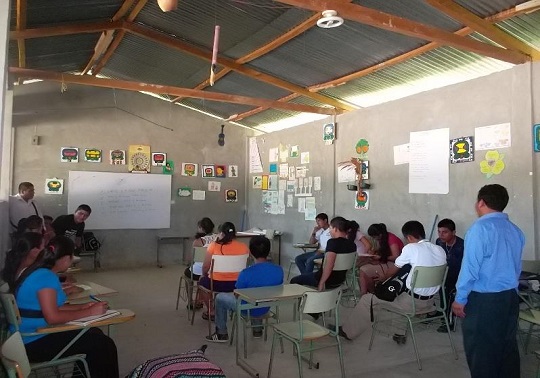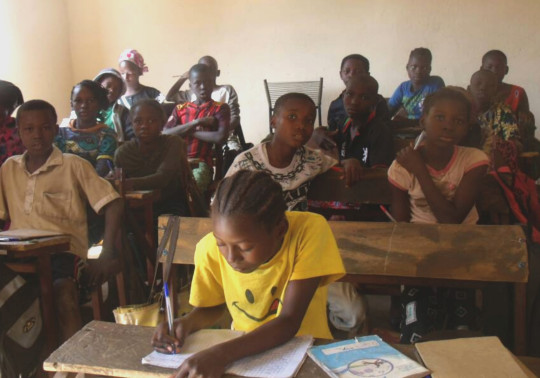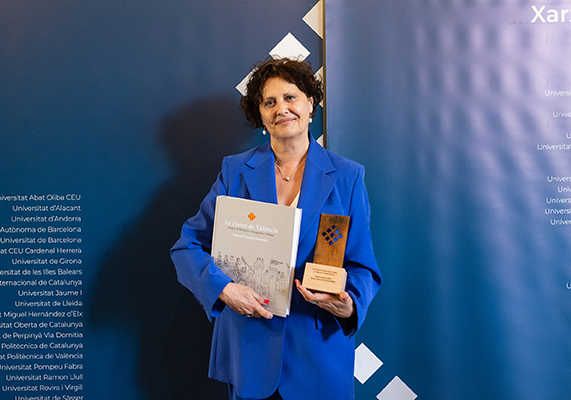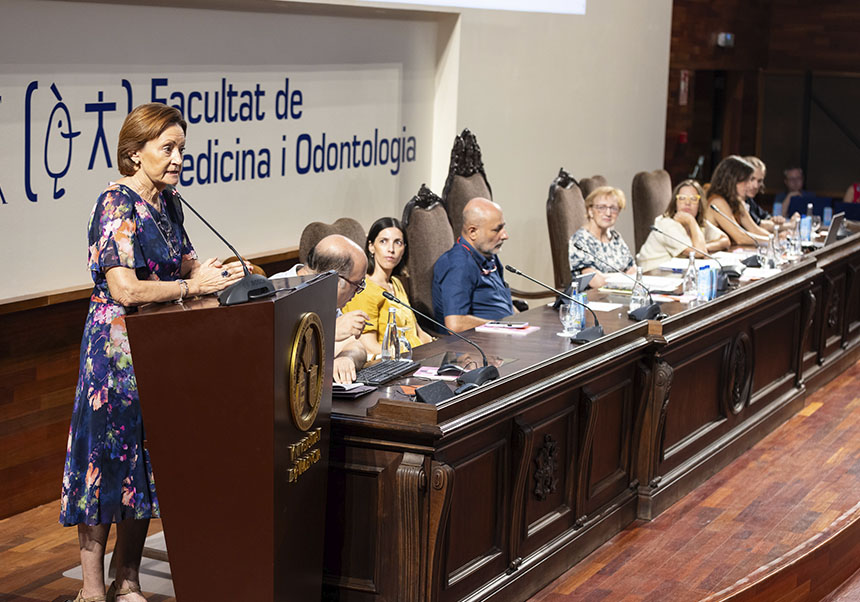The Universitat proposes science as a metohd of change and development by means of a cooperation project in Ethiopia
- Cooperation Department
- February 26th, 2019
Education is the most important factor for change, which is essential to develop and reverse the situacions of poverty and exclusion that a lot countries go through. Due to the commitment with society and the cooperation for the development, the Universitat de València and its members actively participates in several projects through the solidarity programme “0.7 una Nau de Solidaritat.”
With said motivation as a background, the Universitat started in 2007 an extensive project along with the Ethiopian school Ligaba Beyene, which its last phase has allowed the improvement in access to science education for the students on the last years of the primary school (between 12 and 14 years old) Furthermore, the programme has built three laboratories of: physics, chemistry and biology. “What we have done in this phase is providing spaces which already existed in the school as laboratories. At the moment, the new center is probably the only school in Ethiopia which has laboratories of science in primary” affirms Luz Cardona, a professor in organic chemistry from the Universitat and who is responsible of the project. Along with Belén Abarca, both have launched the construction of these laboratories.
Given the importance of the practical education in science on the first steps of the learning process, spaces and appropiate material and qualified teachers are fundamental. The general idea of the project was to improve the quality of a primary school by providing the appropiate facilities and training teachers in its usage. For this reason, apart from creating the space, “laboratories have been equiped with material, chemical products, gloves, glasses and gowns” says Cardona.
Teachers training has been carried on due to the colaboration and implication of the Ethiopian University of Wolaita Sodo, whos lecturers have elaborated a few manuals to widen teacher’s knowlegde about safety, products usage, preparation of solutions and the use of laboratory booklets. Sodo’s City Hall has collaborated in the administrative issues, ensuring the project’s success and proving its own managment.
Both Cardona and Abarca visited the school last December in order to check its progress by themselves. “Laboratories are already working successfully. Children are being taught practical science classes and municipal authorities, parents and the directive group of the school are very proud” has expressed the professor in Organic Chemistry.
However, there is still a great amount of work to do regarding women’s access to education and science, despite the improvement achieved in the last years. Among the conclusions drawn on the final report of the project, it is possible to observe the rate of women’s participation in the social context in which the project is being developed, being a much higher rate of men in both teachers and staff of the school. Despite of it, regarding the students, the percentage of genre is virtually a 50% and the members of the adminitration are 100% women. It is remarkable that among the students whos the projected is for, there is a higher percentage of women (56%), which can be understood as a change towards gender equality.
However, we need to keep working to create awareness about the importance of practical education, with a particular emphasis on women’s inclusion.
The programme “0.7” of the Universitat de València
The “O.7” programme of the Universitat de València is conducted by the Vice-Principal for Internationalization and Cooperation of the Universitat de València and directed by the 0.7 Commission, which was created in 1995 aiming to stablish the general proceding outlines for the cooperation and development of the Universitat de València; distributes the 0.7% from the annual budget of the Universitat, the 0.7% from the voluntary contributions of its own members and the taxes from the tuition of its students. Said Commission allocates funds to the several cooperation programmes; controlles and supervises the budget and prepares and solves its own cooperation projects, along with the technical support from the Cooperation Area of the University of Valencia General Fundation.
File in: Fundació General UV


















